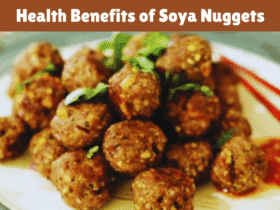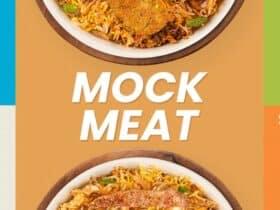Paneer, derived from the Persian word “panīr,” refers to Indian cottage cheese made by curdling milk. It holds a significant place in vegetarian cuisine, being a staple ingredient in many Indian dishes.
Paneer, the ubiquitous Indian cottage cheese, holds a curious position in the world of vegetarianism. Made from milk, an animal product, it raises the question: Is paneer veg or non veg? The answer, as with many things, isn’t entirely straightforward.
Paneer, the fresh, versatile cheese that forms the heart of countless Indian dishes, finds itself at the center of a fascinating debate: is paneer vegetarian or non-vegetarian? This seemingly simple question delves into the complex world of dietary choices, personal beliefs, and cultural interpretations. Unlike a clear-cut “meat or no meat” distinction, paneer’s classification hinges on nuances that deserve a closer look.
Paneer's Origin and Composition
With roots deeply embedded in traditional Indian culinary practices, paneer is a milk-based product made by curdling hot milk with the help of an acidic substance like lemon juice or vinegar. Contrary to some misconceptions, it contains no meat elements, making it inherently vegetarian.
Arguments for Vegetarian Status:
- Definition of Vegetarian: While there’s no universally accepted definition, many vegetarians exclude meat from their diet but allow dairy products like milk, cheese, and yogurt. Since paneer is derived solely from milk, it falls within this definition.
- No Animal Killing: Unlike meat, paneer production doesn’t involve harming or killing animals. The rennet used for curdling is often vegetarian-friendly, avoiding animal enzymes.
- Cultural Acceptance: In India, the birthplace of paneer, it’s considered a cornerstone of vegetarian cuisine. Numerous paneer dishes are staples in vegetarian restaurants and homes.
- Nutritional Benefits: Paneer is a rich source of protein, calcium, and other essential nutrients, making it valuable for vegetarians seeking meat alternatives.
Arguments for Non-Vegetarian Status:
- Animal Origin: Milk, the source of paneer, comes from animals. Even though no animals are directly harmed, some consider any animal-derived product non-vegetarian.
- Strict Vegetarian Views: Vegans, who abstain from all animal products, including dairy, wouldn’t consider paneer vegetarian.
- Religious Considerations: Certain religious interpretations might classify paneer as non-vegetarian based on their specific tenets.
ltimately, the classification of paneer depends on individual dietary choices and interpretations of vegetarianism. There’s no single “right” answer, and it’s crucial to respect various perspectives.
Here are some additional points to consider:
- Types of Paneer: Some paneer varieties might use non-vegetarian rennet. If you’re strictly vegetarian, check the ingredients carefully.
- Personal Choice: As long as you’re comfortable with your dietary choices, whether you consider paneer vegetarian or not is completely up to you.
- Respecting Others: Be mindful of others’ dietary restrictions and respect their choices regarding paneer consumption.
The Case for Vegetarianism:
For many, the vegetarian label rests on the exclusion of meat, not animal products in their entirety. Milk, the source of paneer, fits within this framework. It’s a renewable resource, obtained without harming animals, unlike meat production. Additionally, vegetarian rennet, derived from plants or microbes, can replace traditional animal rennet in paneer production, further solidifying its vegetarian claim.
Culturally, paneer reigns supreme in the vegetarian culinary landscape of India. Countless paneer-based dishes like Palak Paneer, Matar Paneer, and Shahi Paneer grace vegetarian menus and homes. Its protein and calcium content make it a valuable alternative for those seeking meat substitutes.
The Counterarguments:
The opposing camp contends that any animal-derived product, including milk, falls outside the vegetarian umbrella. This stricter definition, embraced by vegans, excludes all animal products, leaving no room for paneer.
Religious interpretations also play a role. Some religions adhere to specific dietary restrictions that might classify paneer as non-vegetarian based on their unique tenets.
Nutritional Value of Paneer
Paneer is a powerhouse of nutrients, boasting high protein content. This makes it a valuable addition to both vegetarian and non-vegetarian diets, providing essential amino acids and promoting overall well-being.
Paneer in Cultural Context
In Indian cuisine, paneer is not just an ingredient; it’s a cultural phenomenon. It has seamlessly integrated into diverse diets, becoming a symbol of inclusivity in the culinary landscape.
Misconceptions about Paneer
One common misconception is the association of paneer with non-vegetarian dishes. It’s crucial to clarify that paneer, in its pure form, is entirely vegetarian, dispelling any doubts about its meat content.
Paneer in Comparison to Meat
While meat and paneer offer distinct nutritional benefits, they cater to different dietary requirements. Paneer serves as an excellent alternative for those seeking protein-rich vegetarian options.
Culinary Misunderstandings around Paneer
Common misconceptions, such as the belief that paneer is non-vegetarian, need to be addressed. By clearing these misconceptions, we pave the way for a more inclusive culinary experience.
Conclusion
In conclusion, paneer is undeniably a vegetarian delight. Its rich cultural history, nutritional value, and global appeal make it a valuable addition to diverse diets. Let’s celebrate paneer for what it is – a versatile and inclusive ingredient that brings people together through the joy of good food.
FAQs:
Is paneer suitable for vegetarians?
- Yes, paneer is a vegetarian product made from milk.
Can non-vegetarians consume paneer?
- Absolutely, paneer is versatile and suitable for both vegetarians and non-vegetarians.
Are there any regulations for labeling paneer as vegetarian?
- Yes, there are standards and certifications ensuring the purity of vegetarian paneer.
What are some international dishes using paneer?
- Paneer is used in various international cuisines, such as paneer tikka in Indian-Chinese fusion or paneer wraps in Western cuisine.
How can I incorporate paneer into a balanced diet?
- Paneer can be included in salads, sandwiches, curries, and snacks to add a protein boost to your meals.












Leave a Reply